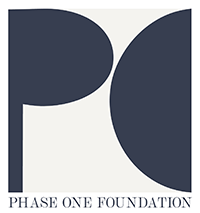Our Featured Research Page lists cancer prevention, treatment and quality of life studies enrolling people with or at high risk for hereditary cancers. You can do a quick search to filter our featured studies by cancer type, study type or key word, or a more in-depth search through clinicaltrials.gov.
Search Results: Treatment + Breast Cancer + Stage 4 + PALB2 (6 results)

Treatment
Treatment study for people with advanced breast, ovarian, pancreatic or prostate cancer or gliomas
Study of the PARP inhibitor AZD9574 Alone and Combined with Other Cancer Medicines to Treat People with Advanced Solid Cancers (CERTIS1 Study)
This research involves studying a drug called AZD9574 on its own and in combination with other anti-cancer drugs in people with advanced cancer that has come back or progressed. AZD9574 is a type of targeted therapy known as a PARP inhibitor. The study aims to understand the safety, tolerance, how the drug moves in the body, how it affects the body, and its initial effectiveness.

Treatment
Treatment study for people with advanced solid tumors
Treating Metastatic Solid Tumors with an Inherited or Acquired Gene Mutation Using the PARP Inhibitor Talazoparib
This study is looking whether the drug Talazoparib (also known as Talzenna) is safe and effective for treating people with advanced solid cancers (including breast, gastric, ovarian, pancreatic, prostate or other solid tumors) in people with an inherited mutation (found through genetic testing) or an acquired mutation (found with biomarker testing) in ATM, ATR, BRCA1, BRCA2, BRIP1, BAP1, BARD1, CDK12, CHEK1, CHEK2, IDH1, IDH2, MRE11A, NBN, PALB2, RAD50, RAD51, RAD51B, RAD51C, RAD51D, RAD54L or other genes.

Treatment
Treatment study for people with advanced solid tumors, including triple-negative breast, ovarian, pancreatic and prostate cancer
NUV-868 Alone and in Combination With PARP Inhibitors in Patients With Advanced Solid Tumors
This study will test how safe and effective the experimental drug NUV-868 is by itself and in combination with a PARP inhibitor in people with advanced solid tumors. The first part of the study will include people with any solid tumor type, and the second part will include people with triple-negative breast, ovarian, pancreatic or prostate cancers only.

Treatment
Advanced pancreatic cancer or stage 4 breast cancer in people with a BRCA1 or BRCA2 mutation
SHARON: A Clinical Trial for Metastatic Cancer With an Inherited BRCA or PALB2 Mutation Using Chemotherapy and Patients’ Own Stem Cells
The purpose of this study is to see whether the combination of melphalan, BCNU, hydroxocobalamin, ascorbic acid, and autologous (self) bone marrow stem cell infusion, is safe and effective for treating patients with advanced pancreatic cancer or Stage IV, HER2-negative breast cancer who have a BRCA1, BRCA2 or PALB2 inherited mutation. All of these treatments are given intravenously (by vein). This study is open to people who have already received a PARP inhibitor, as well as those who have not. There are no restrictions on the number of prior treatments a patient has received before enrolling.

Treatment
Advanced ovarian, breast, prostate or pancreatic cancer
Investigational PARP Inhibitor AZD5305 Alone or Combined With Other Anti-cancer Agents in People With Advanced Solid Tumors (PETRA)
PETRA is studying a new PARP inhibitor AZD5305 taken either alone or combined with other treatments in people with advanced ovarian, breast, prostate or pancreatic cancer with an inherited or tumor mutation in: BRCA1/2, PALB2, RAD51C or RAD51D. The treaments participants receive will depend on their cancer type, mutation and when they join the study.

Treatment
Advanced solid tumors
Treatment with ATR Inhibitor for Advanced or Metastatic Solid Tumors
This study will look at how well a new oral targeted therapy known as an ATR inhibitor works on advanced or metastatic solid tumors with mutations in genes linked to DNA damage repair. The study will look at response to treatment with the drug ART0380 in combination with the chemotherapy agent, gemcitabine.

